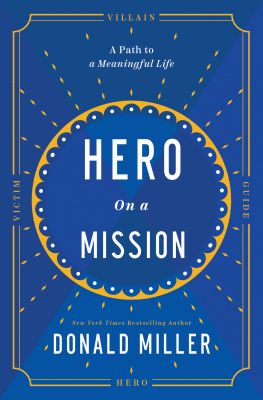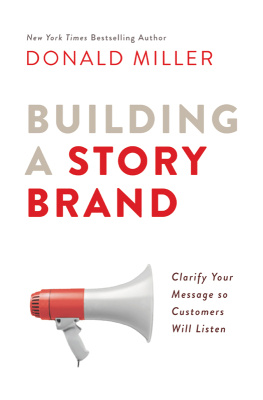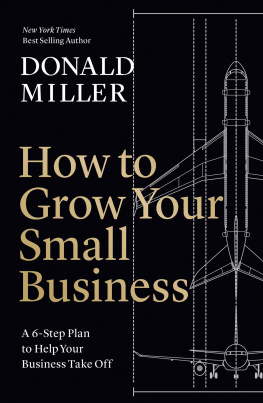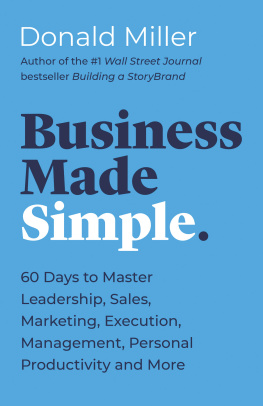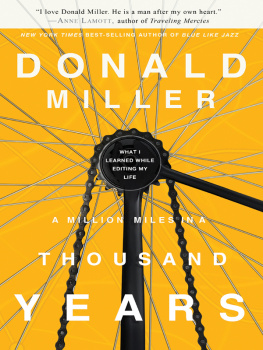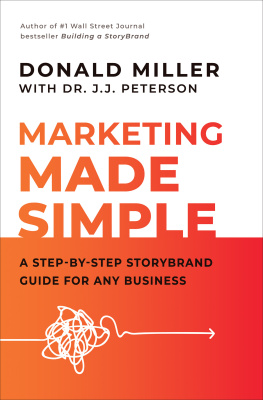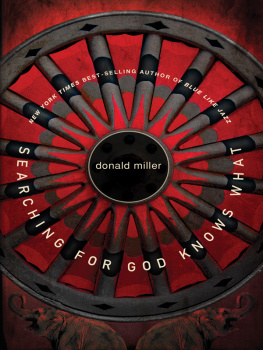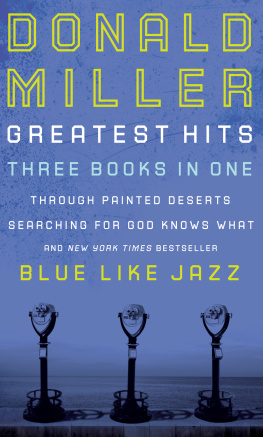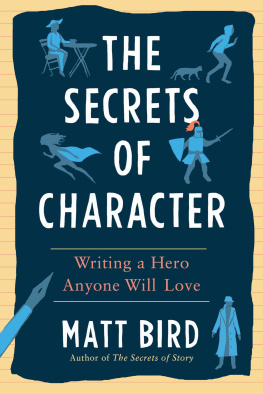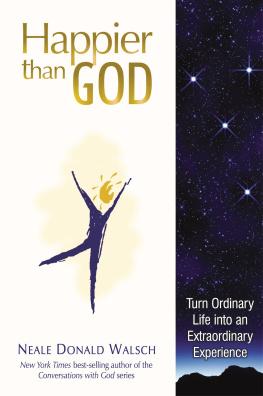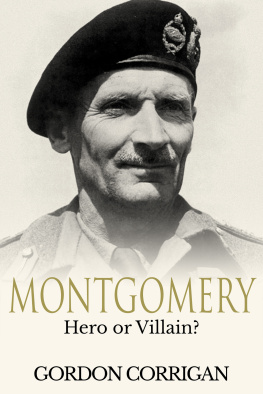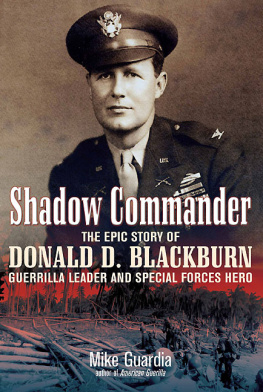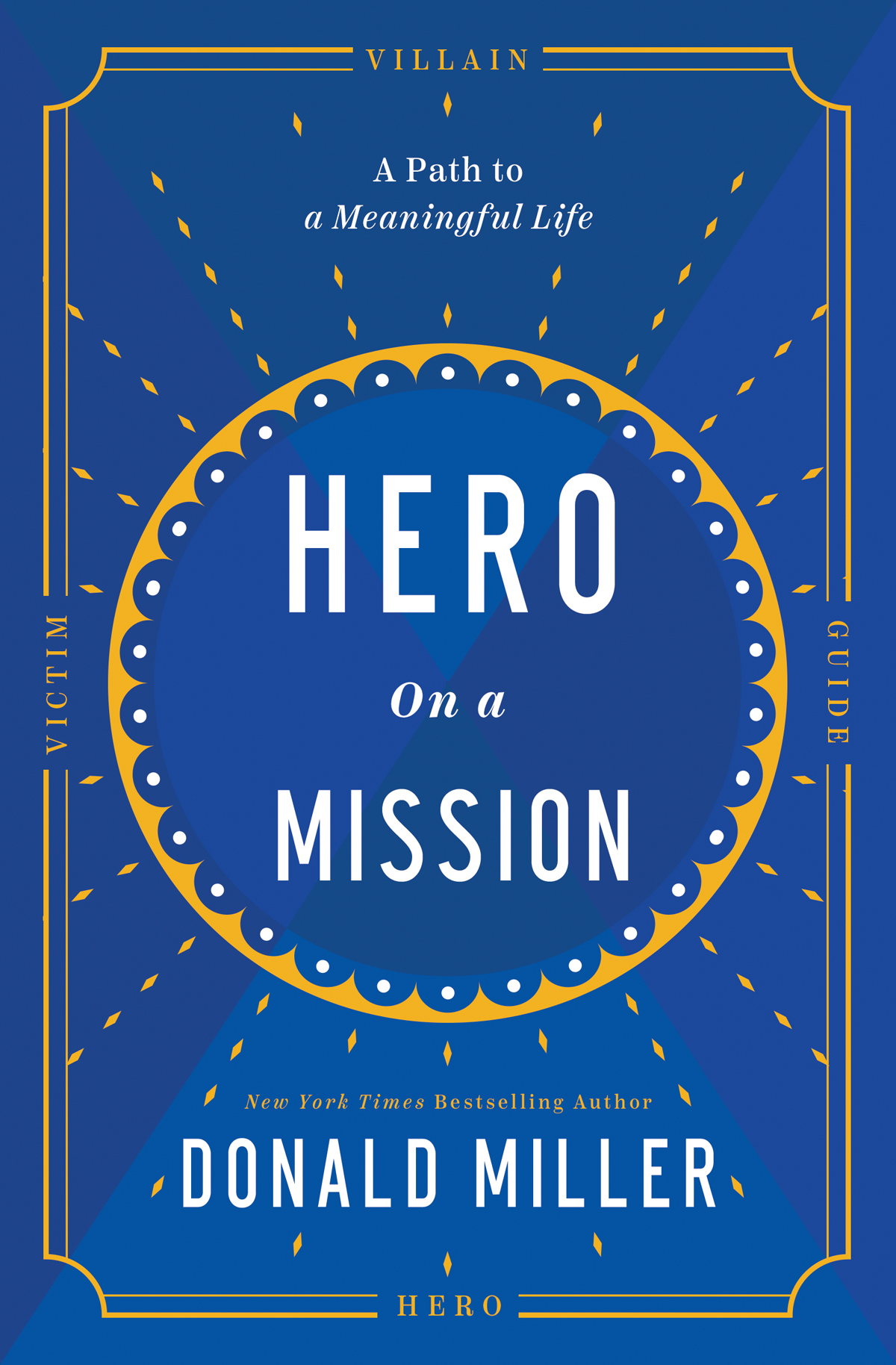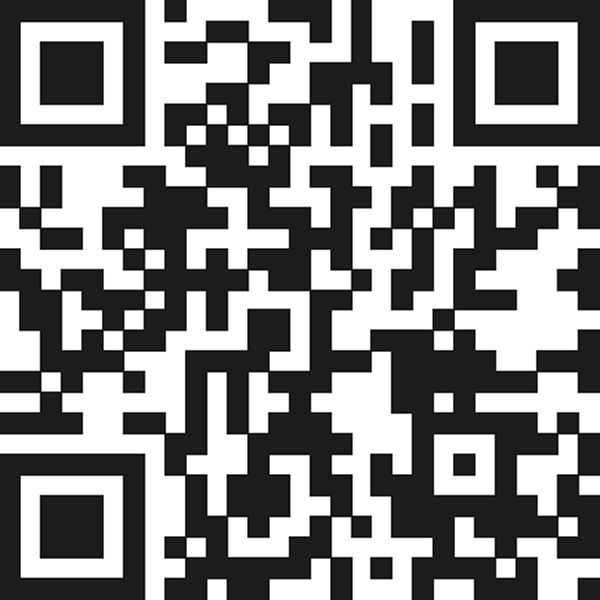2022 Donald Miller
All rights reserved. No portion of this book may be reproduced, stored in a retrieval system, or transmitted in any form or by any meanselectronic, mechanical, photocopy, recording, scanning, or otherexcept for brief quotations in critical reviews or articles, without the prior written permission of the publisher.
Published by HarperCollins Leadership, an imprint of HarperCollins Focus LLC.
Any internet addresses, phone numbers, or company or product information printed in this book are offered as a resource and are not intended in any way to be or to imply an endorsement by HarperCollins Leadership, nor does HarperCollins Leadership vouch for the existence, content, or services of these sites, phone numbers, companies, or products beyond the life of this book.
ISBN 978-1-4002-2802-7 (eBook)
ISBN 978-1-4002-2694-8 (HC)
Epub Edition November 2021 9781400228027
Library of Congress Cataloging-in-Publication Data
Library of Congress Cataloging-in-Publication application has been submitted.
Printed in the United States of America
22 23 24 25 26LSC10 9 8 7 6 5 4 3 2 1
Ebook Instructions
In this ebook edition, please use your devices note-taking function to record your thoughts wherever you see the bracketed instructions [Your Notes] Use your devices highlighting function to record your response whenever you are asked to checkmark, circle, underline, or otherwise indicate your answer(s).
For Emmeline Miller
This book comes with a free Hero on a Mission Life Plan and Daily Planner. Scan the QR code below to download your life plan and daily planner pages:
Contents
Guide
I dont think any of us should trust fate to write the story of our lives.
Fate is a terrible writer.
In stories, there are four primary characters:
- The victim is the character who feels they have no way out.
- The villain is the character who makes others small.
- The hero is the character who faces their challenges and transforms.
- The guide is the character who helps the hero.
As you read a story or watch a movie, you feel sympathy for the victim, you cheer for the hero, you hate the villain, and you respect the guide.
These four characters exist in stories not only because they exist in the real world, but because they exist inside you and me.
In my life I play all four characters every day. If Im faced with an unfair challenge, I usually play the victim for a minute, feeling sorry for myself. If I am wronged, I dream about vengeance, like a villain. If I come up with a good idea and want to make it happen, I switch into hero mode to take action, and if somebody calls and needs my advice, I play the guide.
The problem is these characters are not equal. Two help us experience a deep sense of meaning and two lead to our demise.
For many years I mostly played the victim, and this mindset negatively affected the quality of my life. As Ill explain in the book, I did not like myself. I did not like my life and was not respected by others. I also didnt make any money, did not have healthy relationships, and was not competent as a professional.
My life played out like a sad tragedy, and it would have gone on that way if Id not discovered something.
I realized that my problem was not my circumstances or my upbringing or even past trauma; my problem was the way I viewed myself. Again, I viewed myself as a victim.
As I understood more about the powerful characteristics of heroes in literature and in movies, though, I became curious about whether embodying some of those characteristics would create a better life experience.
Living like a hero (which is nothing like you might thinkheroes are anything but strong and capable; they are simply victims going through a process of transformation) entered me into, unknowingly, something called logotherapy, a therapy created by a Viennese psychologist named Viktor Frankl. I will explain much more about logotherapy in this book.
Entering into logotherapy changed my life for the better. I went from being sad to being content. I went from unproductive to productive. And I went from having certain fears of close relationships to being able to enter into and enjoy those relationships. Mostly, though, I went from feeling life was meaningless to experiencing a deep sense of meaning.
About ten years into living this way, I created a life plan and daily planner that helped me turn all of these helpful ideas into a system. And thats what this book is about. Its about living like a hero so you can experience a deep sense of meaning. The book teaches a simple-to-use system allowing anybody to live a life that delivers a deep sense of meaning.
If you have struggled with a feeling of futility, or if you are tired of the story youve been living, or if you are having to start over and create a new reality for yourself, I hope you find this book to be helpful.
L IVING A MEANING-FILLED STORY does not happen by accident. In fact, living a good story is a lot like writing one. When we read a great story, we dont realize the hours of daydreaming, planning, fits, and false starts that went into what the reader may experience as a clean line of meaningful action.
Stories can be fun to write and fun to live, but the good ones take work.
Whether we like it or not, the lives we live are stories. Our lives have a beginning, middle, and end, and inside those three acts we play many roles. We are brothers and sisters, sons and daughters, mothers and fathers, teammates, lovers, friends, and so much more. For many of us, the stories we live feel meaningful, interesting, and perhaps even inspired. For others, life feels as though the writer has lost the plot.
All of this begs the question, though: Who is writing our stories? Is God writing our stories? Is fate writing our stories? Is the government or our boss or the church writing our stories? I heard an interview with a physicist who espoused the possibility our stories actually dont exist in time at all and that they have not yet started and are already done at the same time, or rather in the absence of time. Perhaps this is true but even if it is, Im not sure how it helps me enjoy life any more or less. The truth is, we all have to live this life and experience it within the confines of time and Im guessing we all want the experience to be as meaningful as possible.
For practical purposes, it is my position that the author of our stories is actually us. Perhaps the single greatest paradigm shift Ive had as a human is this idea: I am writing my story and I alone have the responsibility to shape it into something meaningful.
I agree with James Allen, who said in his 1902 book As a Man Thinketh, Man is buffeted by circumstances so long as he believes himself to be the creature of outside conditions, but when he realizes that he is a creative power, and that he may command the hidden soil and seeds of his being out of which circumstances grow, he then becomes the rightful master of himself.
Here is a hard truth: if God is writing our stories, He isnt doing a good job. I think we can all agree that some peoples stories seem quite tragic and many of us have experienced our share of those tragedies. Whats more, if God is writing our stories, He isnt doing a fair job either. Some people are born privileged, and some are not. Some people die an untimely death, and others live in prime health until their credits roll.

